‘Housing Not High Rises:’ Group Opposing 13-Story Arrow Linen Project Says Local Context Missing
Locals fighting a rezoning plan to put up two 13-story residential buildings on Park Slope’s Arrow Linen site aren’t against housing, members of the group told a community meeting on Wednesday night.

Arrow Linen’s Prospect Avenue site in December 2023. Photo by Susan De Vries
Locals fighting a rezoning plan to put up two 13-story residential buildings on Park Slope’s Arrow Linen site aren’t against housing, members of the group told a community meeting on Wednesday night. They said they would be happy to see the site return to residential provided the new development fits the scale of the neighborhood and the apartments are truly affordable.
Two members of Arrow Action, Jay Goldberg and Chris Huntington, spoke to about two dozen people at a 72nd Precinct Build the Block meeting at the Holy Name of Jesus Church on Prospect Park West, a month after a crowd of around 300 gathered in the same location to discuss the proposal.
“We are trying to raise awareness about this project and we’re trying to kind of push the conversation towards housing and not high rises,” Goldberg told those gathered in the church hall.
“We understand that there’s a need for housing in the city. We understand that the property right now is being used as a commercial property and it would be great to have more housing there. We think that 13 stories on that site is really way too big for the neighborhood, it is twice the size of any other building in the neighborhood.”
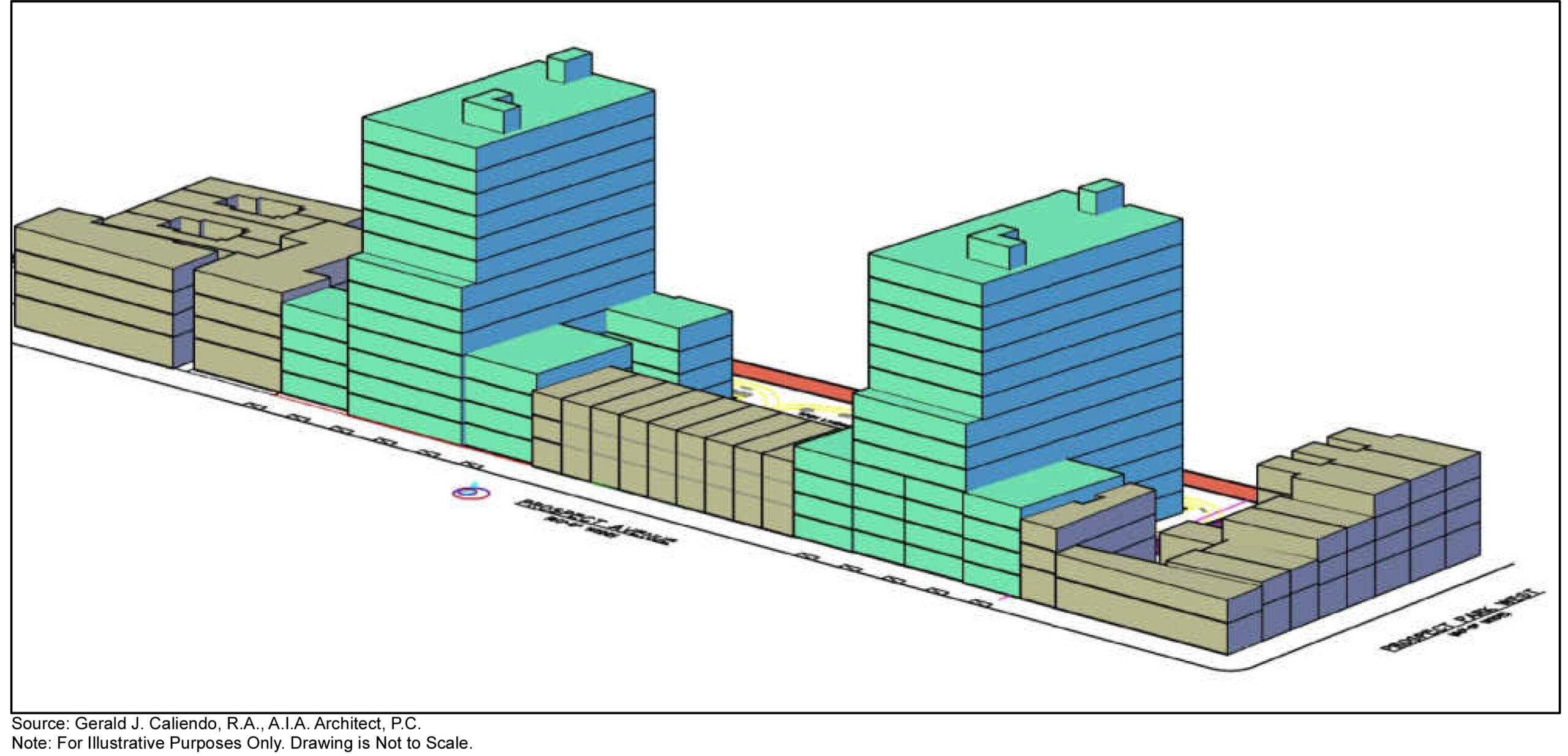
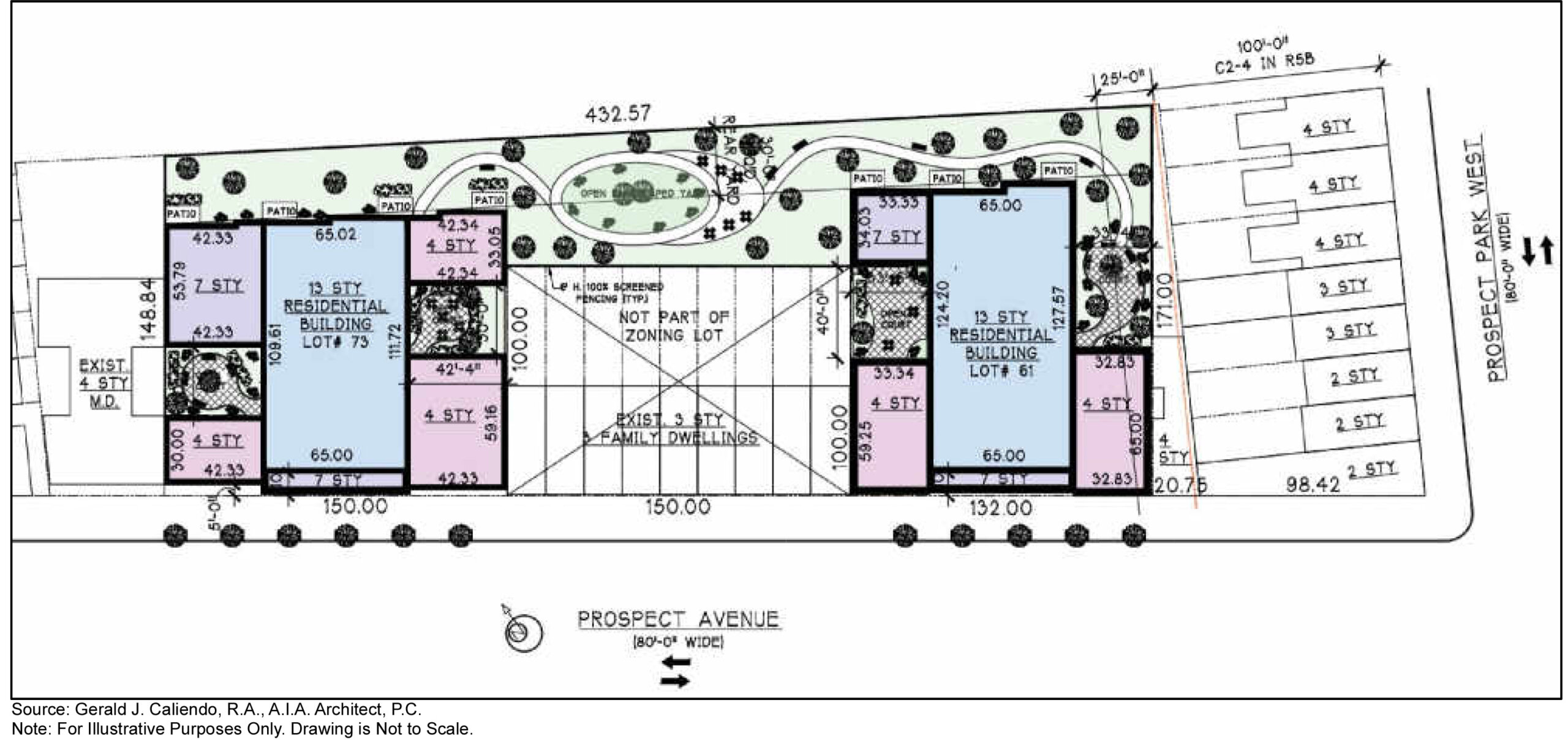
The owner of the site, a longtime South Slope business, intends to rezone the property to maximize its value, sell the site, and move their unionized workers and laundry operations elsewhere — perhaps to its second facility in Garden City, N.Y., on Long Island. Arrow Linen, which has operated at 467 Prospect Avenue since 1978 and has customers across the New York metro area, filed a rezoning application on August 15.
When the block association got wind of the proposed rezoning and new developments it would bring, the group started organizing in opposition. Fliers were distributed, meetings were held, and Arrow Action was formed with members of the wider community.
Arrow Linen is asking for the u-shaped site – and the privately owned townhouses it surrounds – to be converted from R5A to R7-1 zoning, allowing for taller residential buildings to be developed on the already residential-zoned land. The linen company is proposing two 13-story towers with 244 apartments.
Under the Mandatory Inclusionary Housing program triggered by any rezoning, 25 percent of the apartments (61 units) would have to be income restricted to those earning 60 percent of Area Median Income, or 30 percent (73 units) would have to be restricted to those earning 80 percent of AMI, depending on which option developers choose. With either option, the units would be rent stabilized.
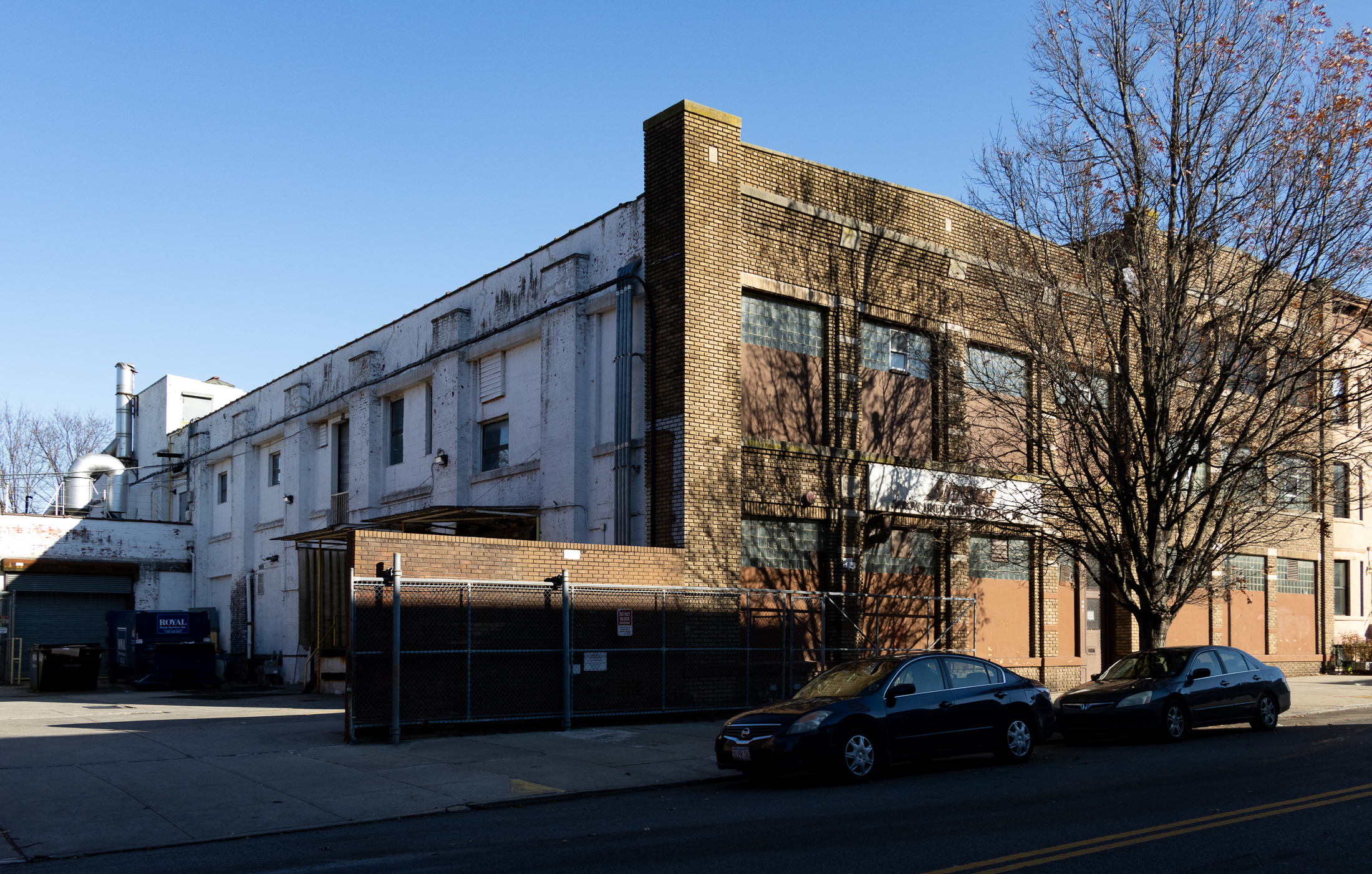
Currently, two-bedroom apartments for those earning 60 percent AMI, or $76,260 for a family of three, are going for around $1,600 to $1,700 a month, other lotteries on NYC Housing Connect show. Two-bedroom apartments for households earning 80 percent of AMI, currently $101,680 for a family of three, are around $2,000 to $2,300 a month.
According to its website, Arrow Action is fighting for expanded housing combined with neighborhood preservation and affordability, and it wants to stop “aggressive rezoning.” Its petition in opposition to the rezoning, aimed at local Council Member Shahana Hanif, has got more than 1,100 signatures, according to Goldberg.
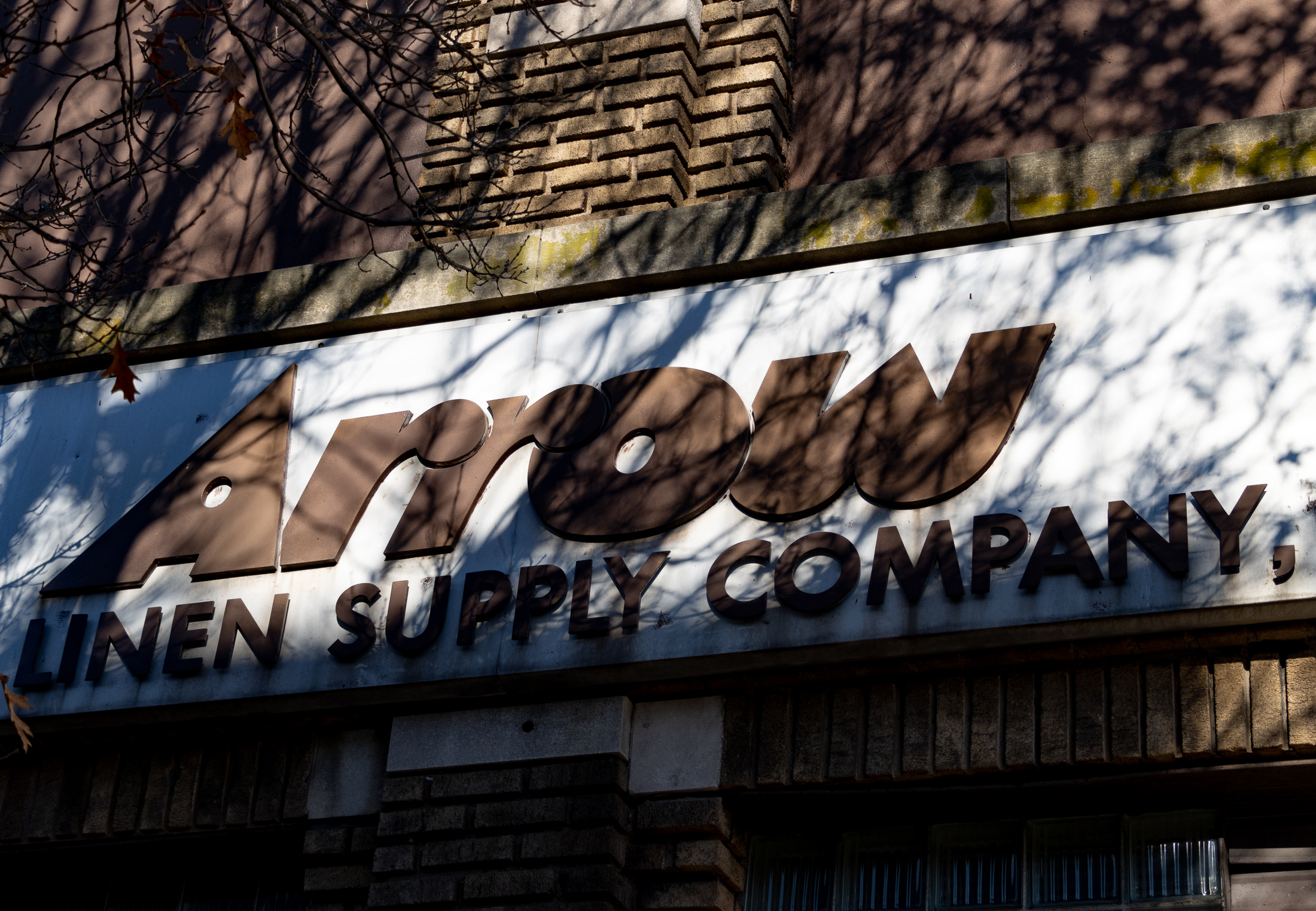
At Wednesday’s meeting, it was clear height and affordability are the two main issues Arrow Action is trying to tackle. Huntington said Arrow Action wants to see more deeply affordable apartments than what MIH would provide. “We’d like to see housing that the Arrow Linen workers could afford, not something that checks a regulatory box and is otherwise market rate or luxury apartments.”
However, unless developers are able to acquire land at a low cost and tap into city funding for extremely low income or senior housing, they rarely (if ever) are able to offer deeper affordability than what MIH requires because they would likely lose money on the project.
Height wise, at 13 stories the buildings would be way out of scale with the neighborhood, Huntington said, with the current tallest building, Bishop Boardman Apartments, coming in at seven stories. As of right, without a rezoning, a three-story development could be built on the site.
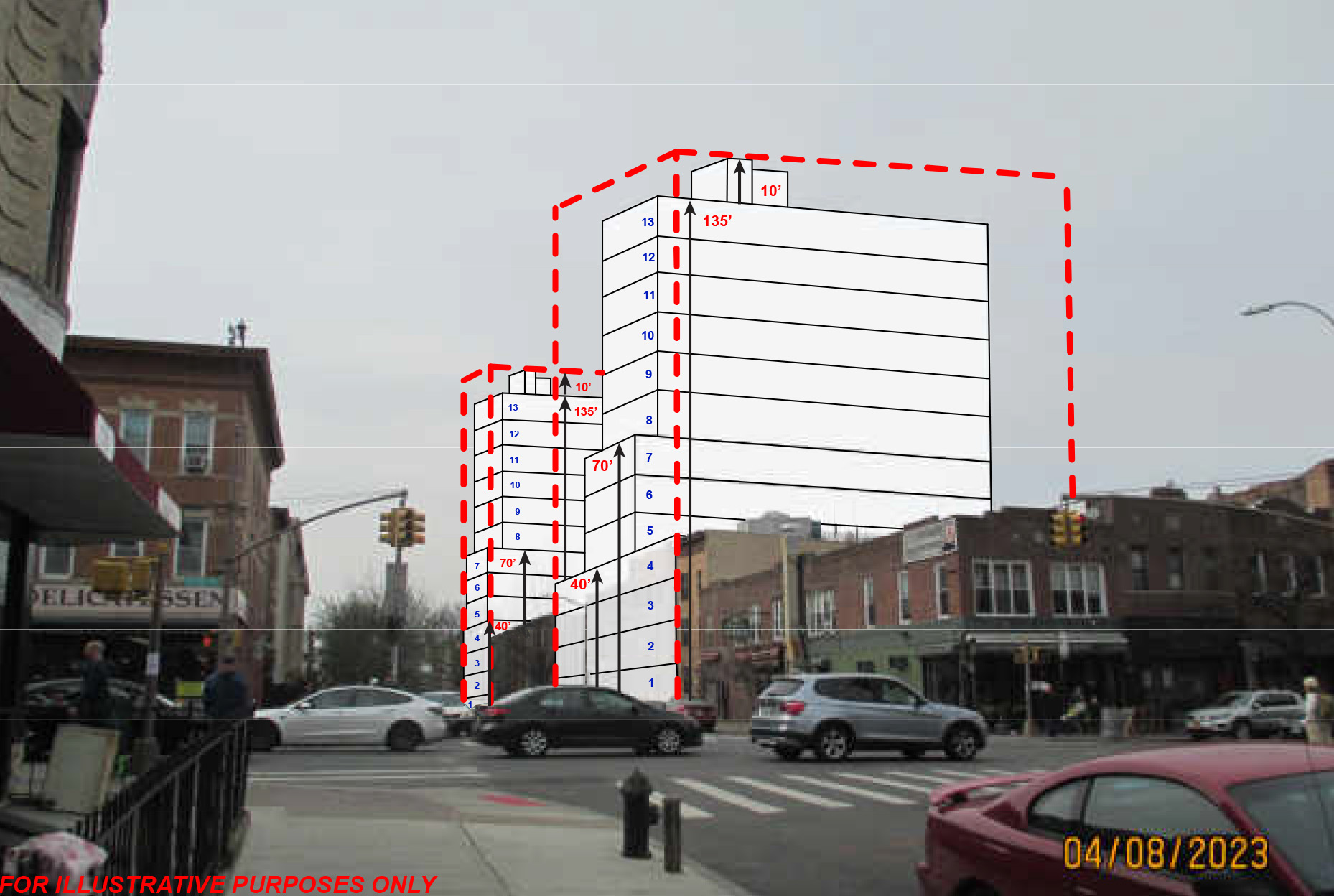
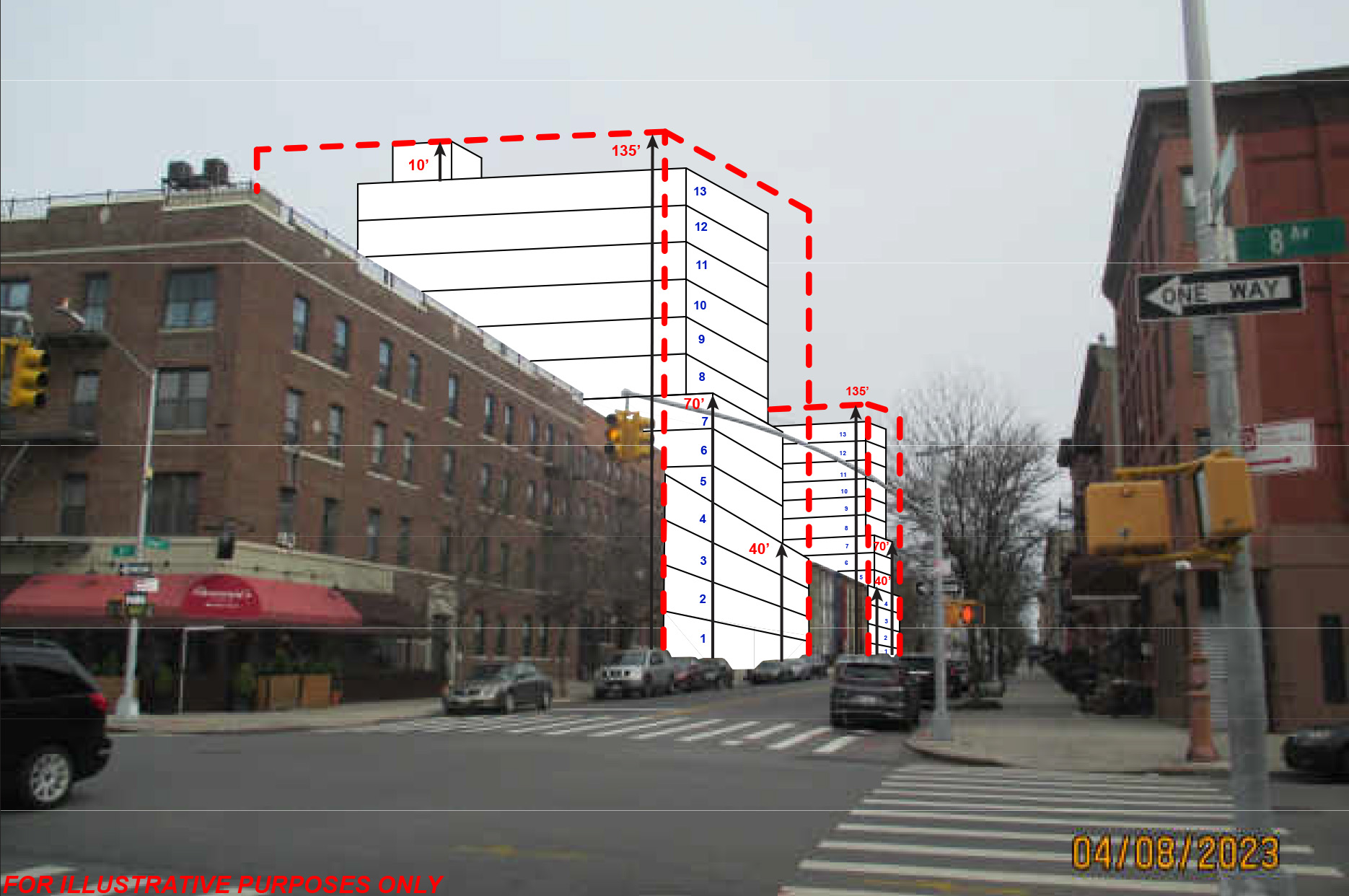
“Once that zoning goes through, it means anywhere in this basic region, you can have 13-story buildings. It just gets way ahead of any kind of basic, sober, considerate rezoning plan, which this neighborhood has gone through many, many times. It is kind of a leapfrog ahead of any kind of basic process,” he continued.
Huntington added there is no guarantee the rezoned site would be developed in line with the plans presented in Arrow Linen’s application, given there is not yet a developer slated for the project. That meant if the rezoning goes ahead, a developer could decide to build even taller than the 13 stories presented in the plans, in accordance with the zoning limits, if they leave open more space.
The rezoning application and planned new buildings come at a time when the city is facing a major shortage of affordable housing, and when YIMBY/NIMBY rhetoric can cloud development discussions.
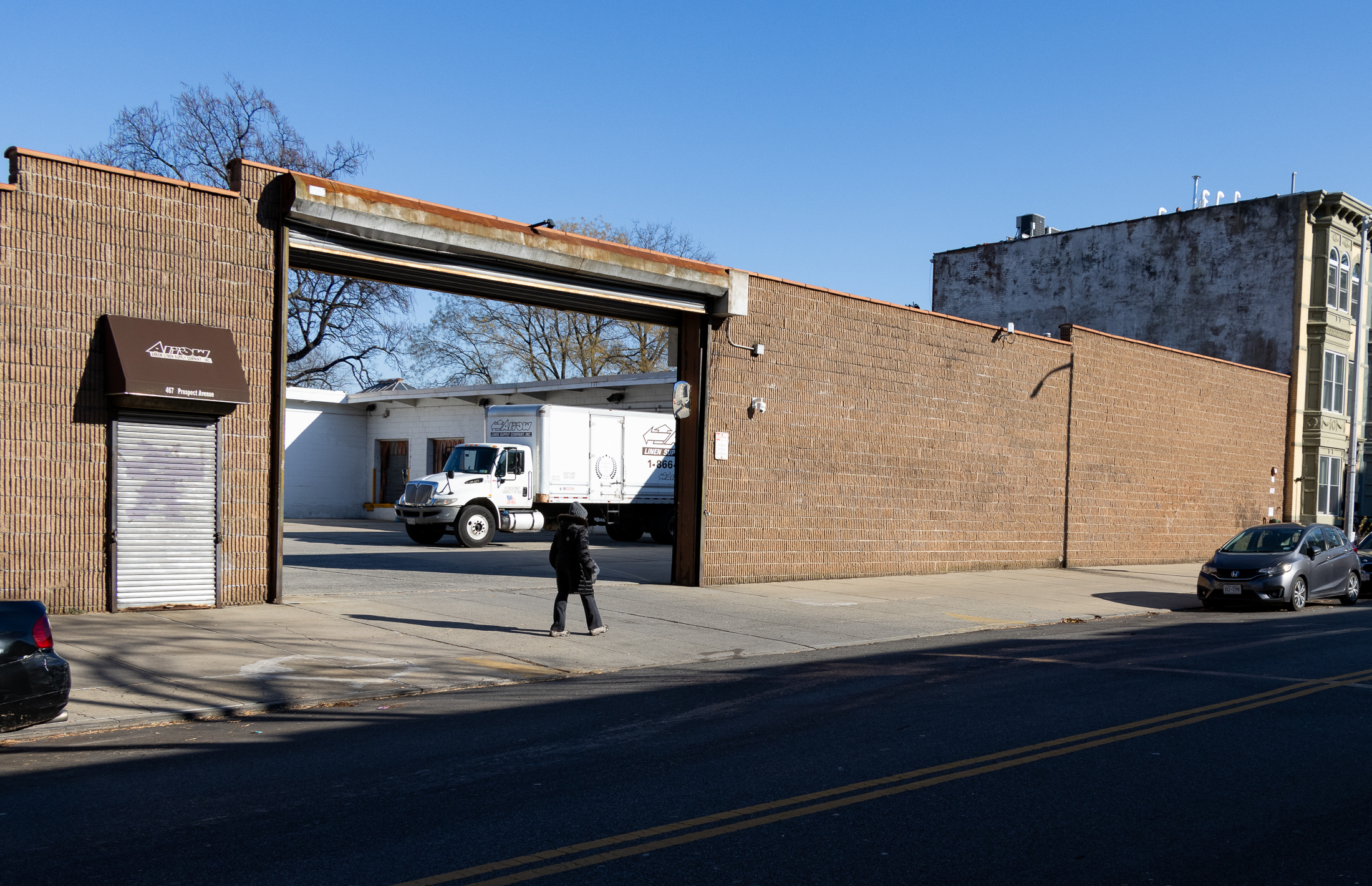
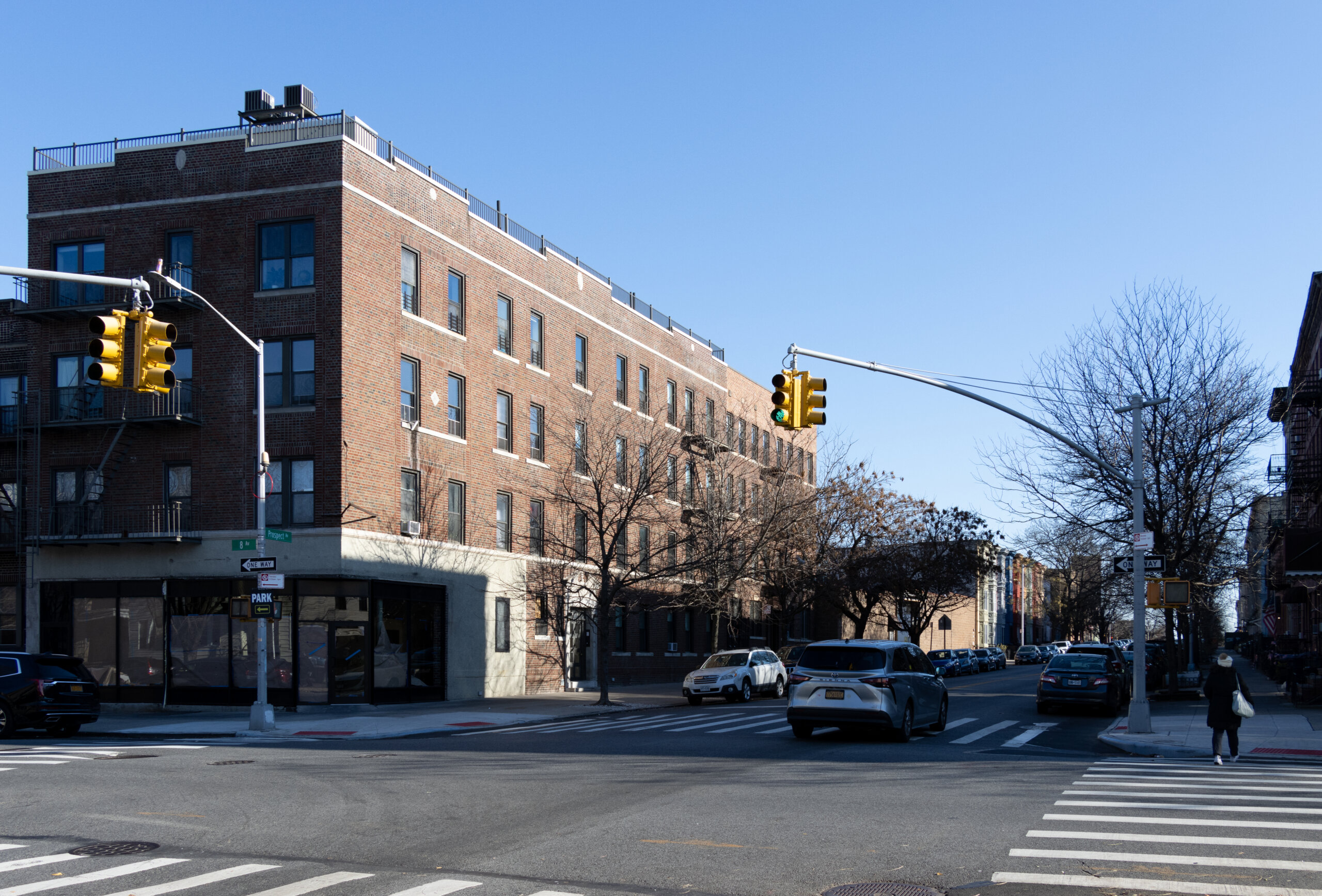
Self-described pro-housing group Open New York responded to Arrow Action’s efforts by organizing a canvassing day in the area to support the rezoning, distributing fliers, and launching a petition in support of Arrow Linen’s plans that has more than 500 signatures, Brooklyn Magazine reported in November.
A story published in The City categorizes Arrow Action members as NIMBYs, but Huntington said that wasn’t accurate or helpful given the group wants more housing. “It’s turning into a sort of a rotten tomato fight, which is pointless, and just obscures the reality of what’s there and what could be there,” he said.
“Our position, I think most simply, is we absolutely want housing in this neighborhood. We want truly affordable housing and we want buildings that fit in the scale of the neighborhood.”
At the meeting, a resident brought up possible parking issues given the development is slated to have no parking on site, saying while she supports efforts to reduce cars on city streets, some residents, such as herself, need a car for health and other issues.
The rezoning also brings into question the future of the nine townhouses that run from 455-465 Prospect Avenue that sit in the middle of Arrow Linen’s u-shaped site. The 19th-century bay-windowed houses, unregulated three-families, appear to be under a mix of individual and LLC ownership, and would likely increase in value as development sites if the rezoning goes ahead.
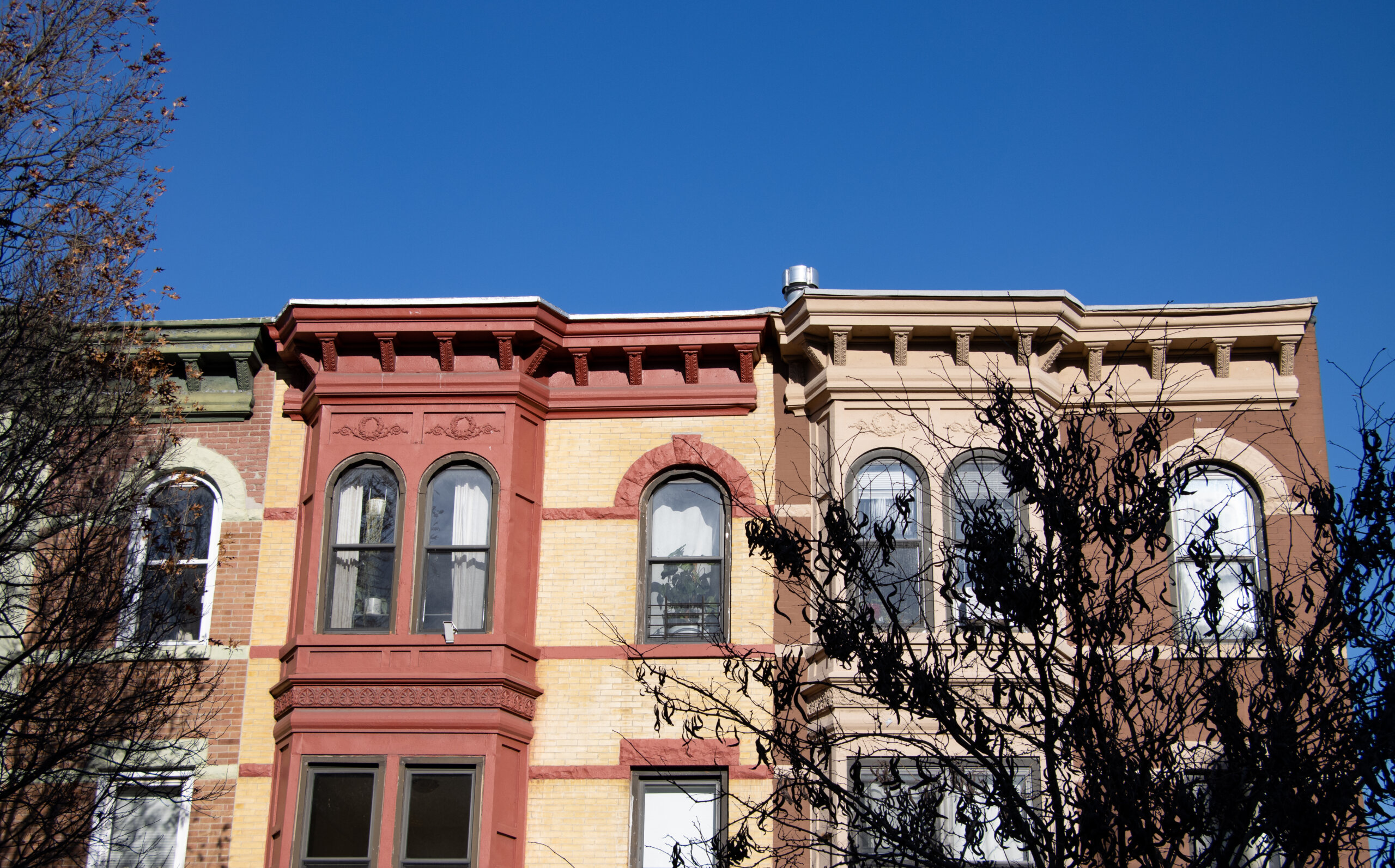
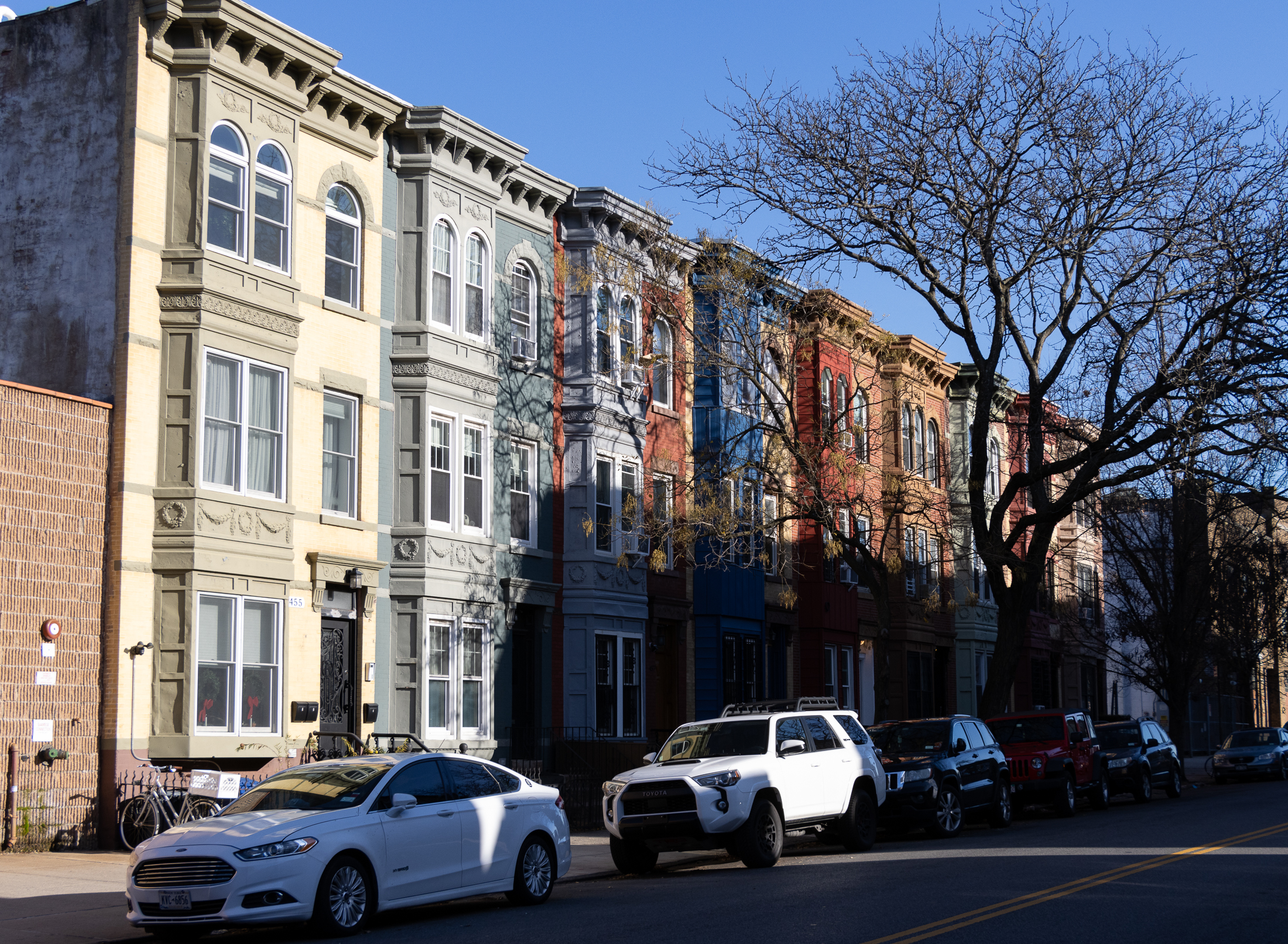
Huntington said Arrow Action members are trying to find a way to meet the Magliocco family behind Arrow Linen and see if they can hammer out a deal that works both for the business and the local community. Brownstoner reached out to Arrow Linen for comment, but has not heard back.
Huntington said the family-run company has worked in the neighborhood for decades, employed local people, been a good neighbor, and deserved to cash out on its hard work. However, he said, he thinks there is a balance to be struck.
The group is meeting with local pols and hopes to garner the support of City Council Member Shahana Hanif, whose verdict on the rezoning will likely influence the way the city council votes. A rep from her office said Hanif is waiting for the Department of City Planning to certify the project before commenting on it publicly.
The rezoning application is still in the very early stages of the city’s land-use review process, and will need to go through multiple stages of public review, a process that can take almost a year. In the meantime, Goldberg and Huntington said Arrow Action will continue organizing and arranging community meetings on the project.
[Photos by Susan De Vries]
Related Stories
- Proposed Rezoning for 29-Story Towers in Broadway Junction Area Inches Forward
- Slew of Modern Apartment Buildings to Replace 19th Century Storefronts Along Myrtle Avenue
- Affordable Housing Lottery Opens for Boxy Park Slope Tower, With Studios Starting at $834 a Month
Email tips@brownstoner.com with further comments, questions or tips. Follow Brownstoner on Twitter and Instagram, and like us on Facebook.

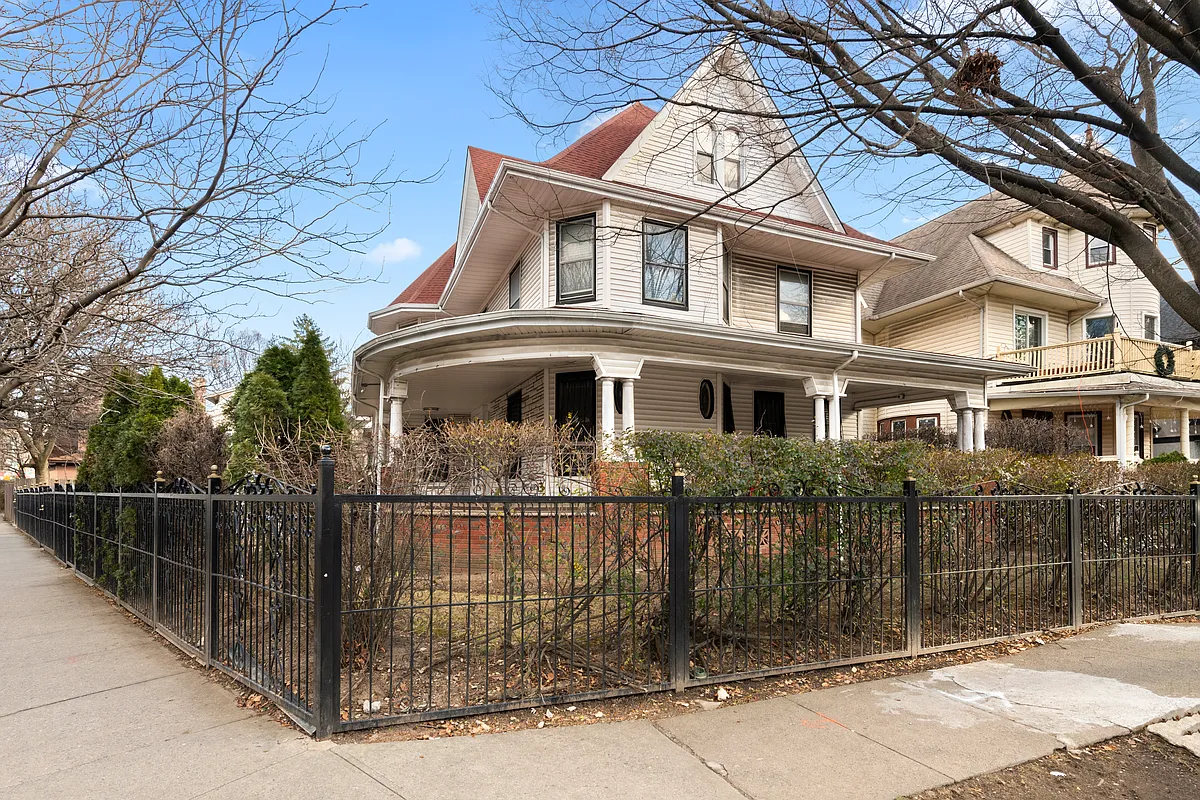
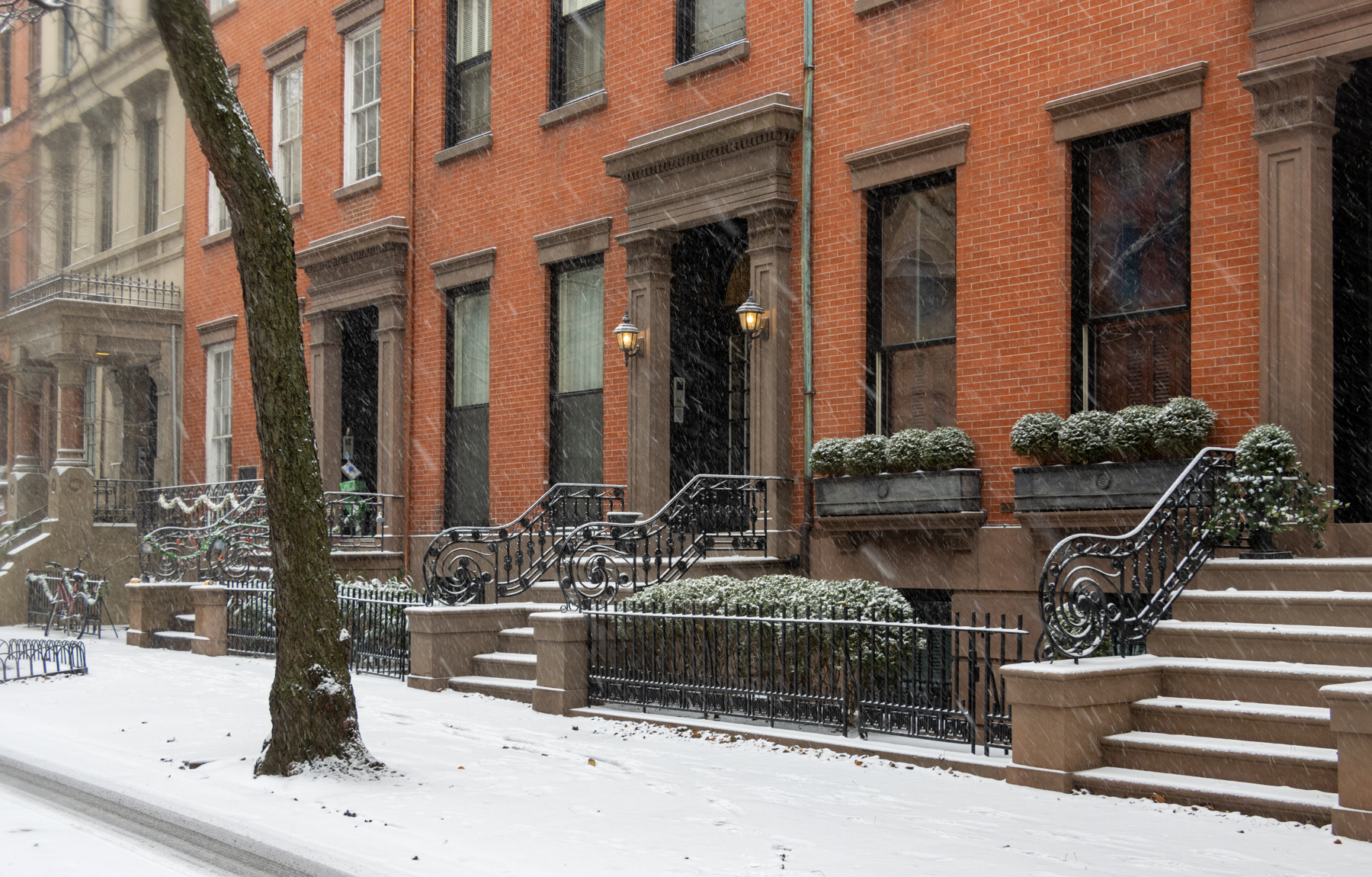

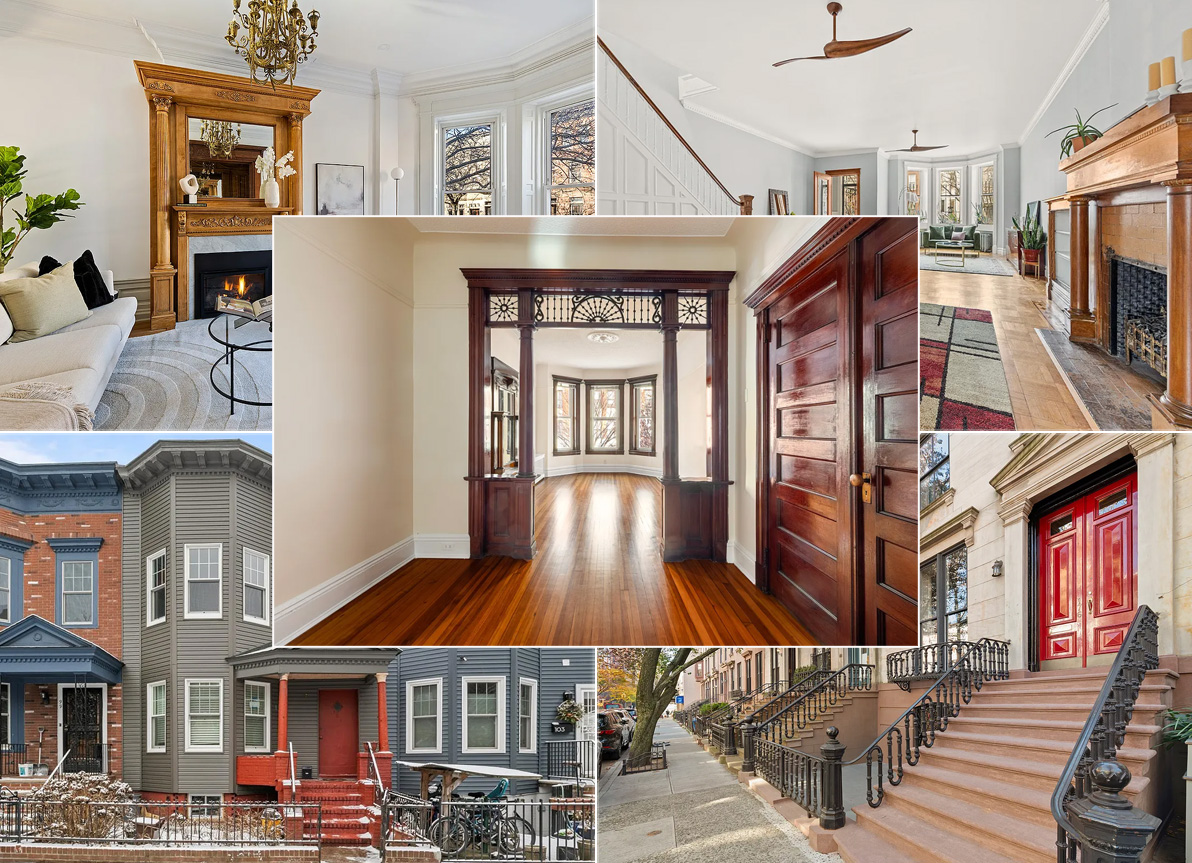




What's Your Take? Leave a Comment